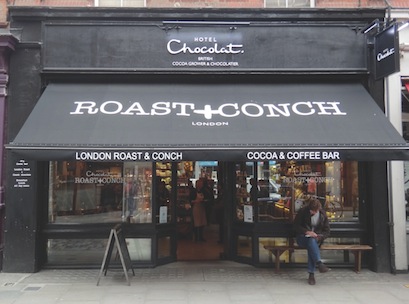With e-commerce growing in sales and popularity on a global basis, retailers are forced to ask, “what is the role of the store?”. The quick answer is that it can no longer just be an efficient place to buy commoditised products. Fit and profitable retailers are creating stores that have become social gathering places, centres for knowledge, learning and information; a place for fun, or relaxation. They are the ultimate showcases for merchandise, exciting customers with possibilities. They ar
e motivators to love better, eat better, or beautify one’s home.
In short, experiential stores are wondrous places that can deliver shoppertainment experiences in a way that a website can’t.
Over a dozen examples in our latest Retail Innovations 9 study answer the question of how a store can thrive in an online world. While some use an array of connected, seamless, digital experiences to enhance the consumer experience, others take simpler out of the box ideas and execute them exceptionally well to become fitter retail businesses.
The overriding message is this: Experiential stores can work well provided you start with the customer and base the physical experience on sound insights.
It’s also essential that you add value rather than complicate the shopping process and ensure every element has a firm reason for being and back this up with outstanding operational management and customer service for a truly fit retail business.
Case study – From tree to tummy, Experiential 2.0
Retailer: Roast & Conch by Hotel Chocolat
Location: London and Copenhagen
The concept: Roast & Conch is an example of a brand with a truly unique concept that engages and involves consumers in its brand proposition. It has pushed the boundaries of a traditional product and produced a highly experiential proposition, bringing together everything it does under one roof, from cocoa growing and chocolate making, to innovative new cocoa-based drinks and food.
With Hotel Chocolat reporting an increase in full year pre-tax profits of 84 per cent in early 2013, other specialty retailers might want to follow its lead and use it as an example of how to achieve greater customer engagement with a product or brand.
Insights/opportunity: Consumers are increasingly concerned with where their food comes from and how it is produced. This of because, despite the economic downturn, consumers continue to take an interest in premium products with a clear USP.
Hotel Chocolat has leveraged its reputation as a premium retailer of artisan chocolate to create its new Roast & Conch casual dining concept. Using fresh cocoa beans delivered from its plantation in Saint Lucia, customers can experience the complete process of chocolate production in action, taking theatre kitchens to a new level.
Innovative qualities: Unlike many other premium retailers, Roast & Conch actively demonstrates its sourcing and production methods (rather than simply stating them).
Furthermore, it has turned this demonstration into an engaging retail experience with exciting and on brand products. Its new Cocoa versus Coffee Bar lets customers explore a range of drinks using cocoa-roasting techniques invented by Hotel Chocolat. Customers can select whether they would like their latte, flat white, or cappuccino prepared with cocoa freshly roasted on the premises or with coffee beans.
Retail Doctor Group is pleased to invite you to join us at our next Fit for Business Breakfast event this March 11 and 12 in Sydney and Melbourne. Peter Birtles, CEO of Super Retail Group together with Russell Zimmerman, Executive Director of Australian Retailers Association, and Brian Walker of the Retail Doctor will discuss current marketplace challenges and opportunities for Australian retailers to build fitter and more innovative businesses in 2014 and beyond. Visit www.retaildoctor.com.au/events for further information.
Happy fit retailing,
Brian Walker
Retail Doctor Group
All currently released trends from Retail Innovations 9 are available to download at www.retaildoctor.com.au/retail-innovation-9.

